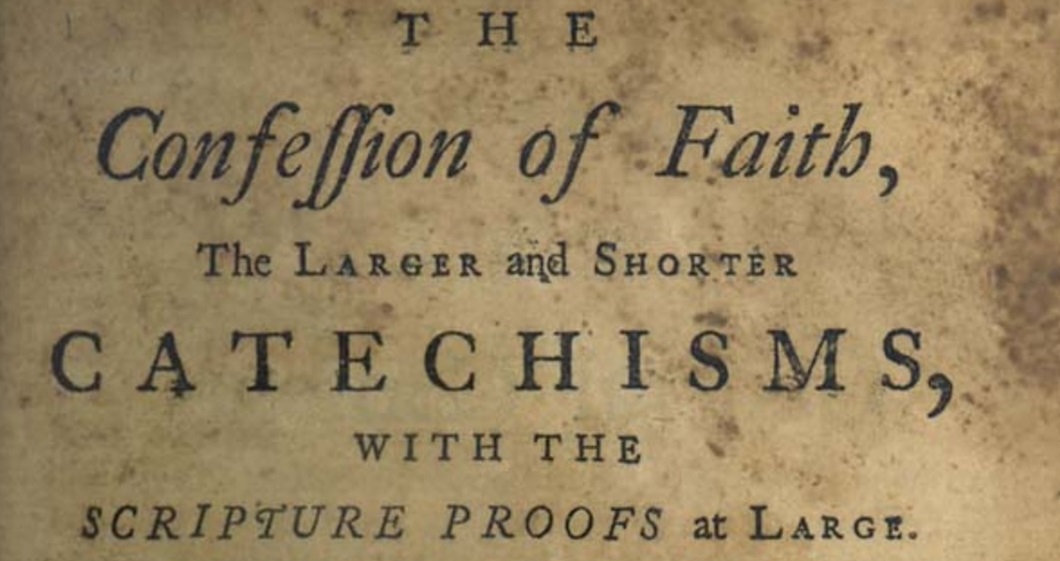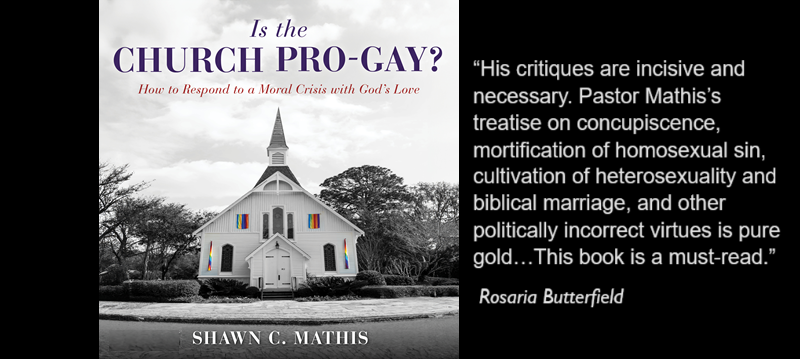
(Part 5 of a five part series)
As much as so-called Christ-centered preaching seems desirable (who’s against Christ?), it is anything but desirable (as I summarize in four prior essays). It is not only ahistorical, non-biblical and problematic, it is unconfessional—some may say anti-confessional.
How can this be? Is not today’s Christocentric preaching rooted in the Bible? And are not the Reformed Confessions rooted in the Bible?
Certainly, Reformed ministers believe the Westminster Confession of Faith is a faithful summary of biblical doctrine. But Christ-centered preaching is not enshrined in it. It is neither explicitly nor implicitly endorsed or assumed in that Confession.
In fact, a careful reading of the Confession and Larger Catechism indicates the opposite.
First, it is important to understand how the Confession relates preaching and the Word. In today’s debates, modern purveyors of redemptive-historic Christocentric preaching tend to elevate preaching over teaching and reading.
In other words, arguments drawn from the general nature and content of the Bible (as read or taught) are ineffectual arguments, ruled irrelevant. “Sure,” some argue matter-of-factly, “James wrote a non-Christocentric book. But that does not mean he preached that way!”
Question 155 of the Larger Catechism lends some credence to this: Q. 155. How is the word made effectual to salvation? A. The Spirit of God maketh the reading, but especially the preaching of the word, an effectual means…
Obviously, the word “especially” does not mean “uniquely,” rather it is an intensifier dependent upon an underlining continuity. The Spirit uses the reading of the Word for wonderful ends. And He especially uses preaching for these same wonderful ends.
Preaching has the same ends as reading, because it has the same content. Thus, arguments about the content of the Bible are relevant. Noting that James is not Christocentric (at least not in the way that term is often used) is a legitimate, indeed, powerful, counterargument.
Question 157 is explicit on this point: Q. 157. How is the Word of God to be read? A. The holy Scriptures are to be read…with diligence, and attention to the matter and scope of them…
If the Bible is to be read with “attention to the matter and scope of them,” how much more preaching?
But there is more. Question 5 of the Catechism logically divides the Bible into two broad categories: what man is to believe concerning God, and what duty God requires of man. And proceeds to divide the remaining questions accordingly.
What man is to believe and his duties are not reduced to some variation of “Christ died for me” within any reasonable reading of the Catechism. Yet if the Catechism is faithful to the Word of God, then the modern proponents must reevaluate their preaching agenda.
Furthermore, it is not simply the nature or content of the Bible that undermines Christ-centered preaching, it is also the nature of saving faith.
Faith must have an object. And saving faith’s saving object is the Person and Work of Christ. This is a bedrock reality in the Christian life, in both justification and sanctification. But does it logically follow that Christ is the only object of saving faith?
“By this faith, a Christian believeth to be true whatsoever is revealed in the Word, for the authority of God himself speaking therein; [283] and acteth differently upon that which each particular passage thereof containeth; yielding obedience to the commands, [284] trembling at the threatenings, [285] and embracing the promises of God for this life, and that which is to come” (Of Saving Faith 14.2).
Obviously, saving faith must not only believe in Christ but believe whatever is in the Bible. This paragraph alone challenges types of preaching that submerge the content and intended purpose of the text with Christocentric themes.
If every sermon is to have Christ’s “cross and resurrection” with Him as the “climax” and lasting thought upon the listeners mind, how are believers to act differently upon different Bible content? How does this type of preaching square with the Confessional view of the Bible?
Since preaching should feed Christians through the mouth of faith, it must feed with the truth of the Bible—all of it. Preaching must feed such that Christians are moved to act.
Do our sermons feed the mouth of faith with whatever is revealed? Do our sermons move Christians to act differently upon “each particular passage thereof…?” Do our sermons urge believers to yield obedience? To tremble at threatenings?
Or do our sermons have so much Promise, Gospel and Christ that these other types of sermons are virtually non-existent?
Question 155 invites more questions: Do our sermons convict Christians? Do our sermons conform them unto Christ? Do our sermons subdue them to His will? Do our sermons strengthen them against temptation? Do our sermons build them up in grace? Do our sermons establish them in holiness?
These goals are not variations on Christology. They assume it. They touch upon it in varying degrees. But every sermon should differ according to the content of the Bible and its intended purpose. Exegetical sermons ought to preach the “manner and scope” of the passage.
It is true the Westminster Confession of Faith does not give explicit direction to preaching. But the accompanying Directory for the Publick Worship of God does. And Christocentric preaching is not exclusively commended. In contrast, sermons that “draw their [listeners] to Christ, the fountain of light, holiness, and comfort” are but one of an arsenal of doctrines to be preached.
More could be written about the Directory. Nevertheless, what is written in the Confession and Catechism is sufficient to show what our Presbyterian forefathers thought about the Word and its impact upon the believer’s life.
It cannot be denied that a careful reading of this historic document leads to the conclusion that pastors are to feed their flock. And the feeding of the flock must include the whole counsel of God.
[Posting occur Mondays or Tuesdays, typically]






This has been a very important series for those who have sat under what has been called Redemptive Historic preaching. It is very difficult to sit under that type of preaching and try to figure out what is wrong. This series has done a very good job of helping those struggling under this type of ministry to see what the issues are and how to frame their discussions with their sessions.
A person who hears RH preaching and has no one to speak with would do well to read this material. It is clearly written. I believe it to be accurate. the Church has had to fight for Christology, Justification by Faith Alone, and now – I believe Hermeneutical method. It’s an important issue and this is a series that needs to be read.
thank you!!
I want to agree with you, but I see the need to distinguish between ‘cross-centered’, or gospel only preaching, and ‘Christ centered’ preaching. Not every sermon needs to be the reformed version of the alter call. But the idea that a pastor would be justified in subjecting the flock to a streak of law sermons where Christ isn’t mentioned at all, perhaps because the Old Testament is being used, seems to me far worse, even after admitting that alter call preaching can easily become tedious.
What is wrong with wanting the Lord’s Day worship service to be focused on that which inspires us to worship, namely Christ? We are talking about maybe two hours, where we put aside our wordly cares and concerns ( and yes, even sanctification might fit under that rubric), and acknowledge the great gift we have received from our God? Even so, that doesn’t create unnecessary restrictions on what can be preached, there is room in a Christ centered sermon for law and gospel, justification and sanctification, repentance and a call to strive for holiness. There is even room for historical and linguistic facts. With Christ as the center, all these things make sense. Biblical, systematic, and historical theology can be brought into service, all of it for the purpose of causing us to worship better and more completely. Can you really see that happening without pointing to Christ? Do you believe that one can be inspired to worship with the whip of the Law, without the balm of Christ? Perhaps there are some who do not think we need inspiration, but we should worship merely because we have so been commanded. I do not believe it.
The idea that an anecdote about a parishioner who thought it nice to not have to hear about ‘Jesus’ for a change, is scary. Sure, you didn’t give any context, so it might be fine to read it as she was weary of hearing one more alter call sermon; but it could also be read as a person who had yet to understand the wealth, the utter grandeur, the inestimable value of the willing submission of Christ being humiliated on our behalf, who got ‘bored’ of something she could not comprehend. As for the other anecdote of a family being under the burden and longing for liberation from Christ centered preaching, I would appreciate further elucidation; I am aware of the burden of the Law, but Christ claims his burden is light. Maybe there was a misunderstanding.
Yes, there is a preaching that makes Jesus your buddy, and says to everyone that it’s all good, your sins are forgiven, and never much more beyond that, and it is good to stand against it since it does not truly elevate Christ as he should be. But some might read you as lumping in even the Christ centered preaching that is well aware of the need to preach law and gospel, grace and judgement, justification and sanctification, faith and its fruits. Is this deliberate, or do you think the distinction between cross centered and Christ centered is appropriate, even helpful, in this conversation?
Thank you
Richard said it well. I was under Redemptive Historic preaching in a Reformed church for several years. The first few times it was exciting and refreshing, then it became routine. Paying attention became a real challenge, followed by guilt for wanting something deeper. Not even taking notes in Chinese resolved the problem. Then my mother came to visit and asked why everyone in church was so unfriendly and mostly unhappy. I wasn’t sure, but I thought it was because there was no Sunday school or any other avenue for people to ask questions, make comments, or be intellectually challenged. Conversations were as shallow as the preaching. My mother suggested I find an OPC church with solid Reformed teaching and friendly people, just like the one we used to attend in Caney, KS. I hated the idea of skipping around to find another church over such an insignificant issue, but I broke down and followed my mother’s advice. Now my wife and I are excited about church, we talk about science, economics, and politics in light of what we heard in the weekly sermon, we stay and visit after the service, and my Chinese is getting rusty. I’m sure that Redemptive Historic preaching is great in theory, but so is Communism. Try living in a Communist country, or attending a Redemptive Historic church, and then come and tell me how that “hopey-changey stuff is workin’ out for ya.”